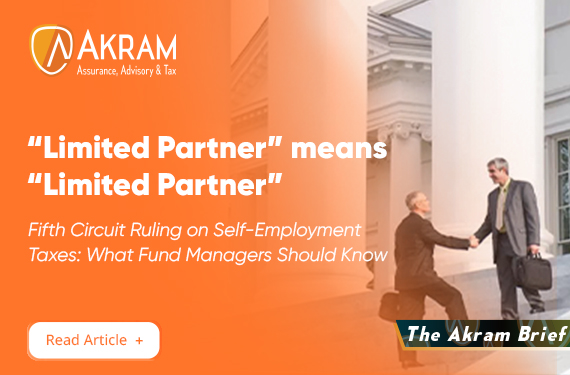Role of Various Entities in a Broker-Dealer Audit
The Role of Various Entities in a Broker-Dealer Audit
The contemporary evolution of the financial markets can be characterized as complex due to multiple intermediaries and single agencies’ operations for the smooth functioning of the processes and the safety of the clients’ interests. One of the main active agents in these markets is the broker-dealer – an organization that performs a number of important processes connected with the marketing of securities, advising on investment, providing liquidity, etc. Quite a regulated sub-sector of finance, broker-dealers are required to have an annual audit of their books to prove their adherence to investor protection rules and other financial practices.
In this article, we will focus on the functions of broker-dealers, the different broker dealer audits they are subjected to, the schemes of activities performed by the broker-dealer audit constituent entities. The comprehension of this process is very important for all entities engaged in the trading of securities or wishing to appraise a broker-dealer’s activities and compliance.
What is a Broker-Dealer?
A broker-dealer is a financial services company that can buy and sell securities for its own account (acting as a dealer) or on behalf of customers (acting as a broker). These firms help clients by buying and selling securities (acting as brokers) but also execute trades to make a profit on their own accounts (acting as dealers). The primary functions of theirs are:
Investment Recommendations: Broker-dealers advise their clients on different types of investment products (stocks, bonds, mutual funds, etc.)
Market-Making: Often acting as dealers themselves, broker-dealers will buy and sell securities to create liquidity — providing assurance that a market for certain assets generally exists.
Facilitating Trading: Broker-dealers also act as intermediaries, they ensure buying and selling of orders for their clients in the existing markets.
Raising Capital: Broker-dealers usually help companies raise capital where the funds have to be sourced in a public offering of securities. These types of firms are essential for financial markets to work, providing individual and institutional investors along with companies a multitude of services. That said, broker-dealers have a substantial place in the market and regulatory requirements apply to them to help ensure transparency, fairness of new issue pricing, accountability for sales practice violations, and investor protection.
The Importance of Broker-Dealer Audits
A broker-dealer audit is a thorough review and testing of a firm's financial reports, operational practices, and adherence to regulatory standards. These audits are meant to confirm that the firm follows the laws and regulations that govern the securities industry, including those established by organizations like the Securities and Exchange Commission (SEC) and FINRA (Financial Industry Regulatory Authority).
There are several key reasons why broker-dealer audits are important:
- Investor Protection: By ensuring that broker-dealers have the right financial controls in place, these audits help safeguard investors from fraud and mismanagement of funds.
- Regulatory Compliance: The audit process verifies that broker-dealers are following the various regulations set by the SEC, FINRA, and other regulatory agencies.
- Market Integrity: Regular audits play a critical role in maintaining the overall health and integrity of financial markets, as they help to identify and mitigate potential risks or regulatory violations that could disrupt market stability.
Key Entities Involved in Broker-Dealer Audits Various key players are involved in the broker-dealer audit process, each contributing to the overall compliance and regulatory framework. Let’s take a closer look at the main entities:
1. Third-Party Auditor The third-party auditor is typically a Certified Public Accountant (CPA) or an independent auditing firm that takes on the responsibility of examining the broker-dealer’s financial statements and operations. Their main job is to ensure that the firm follows the appropriate accounting standards and regulatory guidelines. Here are some important qualifications and responsibilities of the auditor:
Independence: It's crucial for the auditor to remain independent from the broker-dealer to avoid any conflicts of interest. They shouldn’t have any financial or business ties to the firm they are reviewing.
PCAOB Registration: The auditor needs to be registered with the Public Company Accounting Oversight Board (PCAOB). This organization ensures that audits of public companies and broker-dealers meet strict quality and independence standards.
Industry Expertise: A solid understanding of the securities industry is essential for the auditor. They should be familiar with how broker-dealers function, which includes knowing the ins and outs of broker-dealer financial statements, accounting practices, and regulatory filings to conduct an effective audit.
2. Financial and Operations Principal (FINOP) A FINOP is a critical position within a broker-dealer firms structure, being the officer in charge of financial and operational control of the business. Such an individual is responsible for, amongst other things, ensuring compliance with financial reporting standards, the upkeep of internal audit structures, and filing accurate operational figures with the SEC, FINRA, and other relevant authorities. Typical duties of a FINOP may include:
- Maintaining Financial Records: Keeping true and accurate records of the firm’s business activities on a timely basis.
- Financial Reporting: Creating and filing appropriate financial documents relating to performance and structure, such as cash flow statements, income statements, and any reports made to regulatory agencies.
- Operational Risk Management: Managing the organization’s business in a way that meets the regulatory and internal requirements including liquidity, capital and other comparable metrics.
3. Clearing Broker A clearing broker is responsible for clearing and settling trades on behalf of the broker-dealer. A clearing broker is a member of the clearinghouse which is an entity that performs transactions by making sure that the money needed to finalize the trade is in place as well as the necessary securities are exchanged between the parties. The functions of a clearing broker include but are not limited to the following:
- Post-Execution Trade Clearing: Guaranteeing that the trades are reported correctly and the actual movement of securities and money occurs between the respective parties.
- Securities Control: Possession of the instruments in controlled ownership for clients.
- Payment Guarantee: Making sure that there are enough resources to settle trades and that the broker-dealer is required to have a certain minimum amount of financial resources.
4. SEC (Securities and Exchange Commission) The SEC, or the Securities and Exchange Commission, is a governmental body within the United States that regulates the securities market. The SEC has extensive powers concerning broker-dealers and is charged with making sure that such entities are managed in the interest of fair, transparent, and efficient markets. The primary focus of the SEC in the broker-dealer audits consists of:
- Regulatory Oversight: Compliance with the rules related to registration, reporting, and operations.
- Investigations: Looking into possible breaches of the securities acts and regulations especially issues related to fraud or malpractice.
- Audit Enforcement: Appraising the audit opinion contained in the audit report of a given broker-dealer and confirming lawfulness and compliance in all business activities.
5. FINRA (Financial Industry Regulatory Authority) FINRA is a member organization that governs the activities of member brokerage houses and their registered personnel. FINRA’s role in the broker-dealer audit process includes:
- Regulation and Rulemaking: Creating policies and guidelines for broker-dealers as well as the processes involved in their operations.
- Audits: Carrying out its own periodic audits of broker-dealers and assessing their compliance with the laws and internal controls.
- Enforcement: The process of prosecuting firms or individuals associated with any breach of the securities act or violation of FINRA’s statutes.
Conclusion
Broker-dealers play a pivotal role in the financial markets by providing the necessary services related to securities trading, market-making, and investment advice. Given the critical nature of these activities, it is important to note that broker-dealers undergo regular audits to ensure compliance with financial regulations and safeguard investor interests.
Various entities, including third-party auditors, FINOPs, clearing brokers, the SEC, and FINRA, all contribute to the broker-dealer audit process, ensuring that firms operate within the legal framework designed to protect the financial markets.
Whether you are an investor seeking transparency or a firm preparing for an audit, it is crucial to understand the roles and responsibilities of each entity involved to navigate the complexities of the broker-dealer audit process.
If your organization is required to have a broker-dealer audit, you must engage the right professionals to ensure compliance and smooth operations. Reach out to professionals like aifundservices.com to address your audit concerns.







